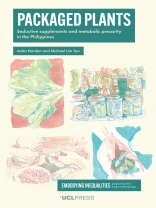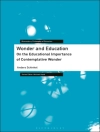Packaged Plants offers an absorbing ethnography and cultural history of how the production and consumption of plants for food and medicine has gone through ‘metabolic rifts’, increasingly processed into commodities with adverse impact on health and aggravating existing economic and social inequities. The book also describes ultra-processed foods that are linked to metabolic syndrome, including cardiovascular disease, diabetes and obesity.
Divided into three parts, the first part presents a comprehensive historical analysis of the socio-metabolic shifts leading to the loss of plant sovereignty in the Philippines. It scrutinizes colonial influences, urbanization, nutritional policies, scientific research programs and neoliberal marketing strategies that have paved the way for the proliferation of packaged plant-based products passed as food or medicines. The second part delves into contemporary socio-metabolic dynamics within Puerto Princesa, interweaving urban political ecology frameworks with medical anthropological perspectives. It elucidates the precarious circumstances of daily life in a boomtown, compelling individuals to invest in supplements and engage in resource-intensive multi-level marketing endeavours.
The third and final part sheds light on efforts to reclaim plant sovereignty, including a resurgence of backyard farming in response to food insecurity exacerbated by the COVID-19 pandemic. Through meticulous research and insightful analysis, Packaged Plants offers a compelling exploration of the intersectionality between health, economics and environment in the Filipino context.
สารบัญ
List of figures
List of tables
List of abbreviations
Notes on contributors
Preface
Acknowledgements
Introduction
1 Packaged plants and the loss of plant sovereignty in the Philippines
Part I: Socio-metabolic shifts and the loss of plant sovereignty
2 Post-colonial metabolic rifts
Photo Essay 1: Living on the edge: food and precarity among Filipino urban poor
3 Attributing therapeutic efficacies to plant materials
4 Reading the scripts
Part II: Socio-metabolic precarity and work in a rural boomtown
5 ‘Be your product’: metabolic precarities in Puerto Princesa
6 Endgame
Part III: Proposals for repair
7 Towards plant sovereignty: proposals for repair
Photo Essay 2: Bringing plant sovereignty to town
References
Index
เกี่ยวกับผู้แต่ง
Michael Lim Tan is Professor Emeritus and former chancellor of the University of the Philippines Diliman.












